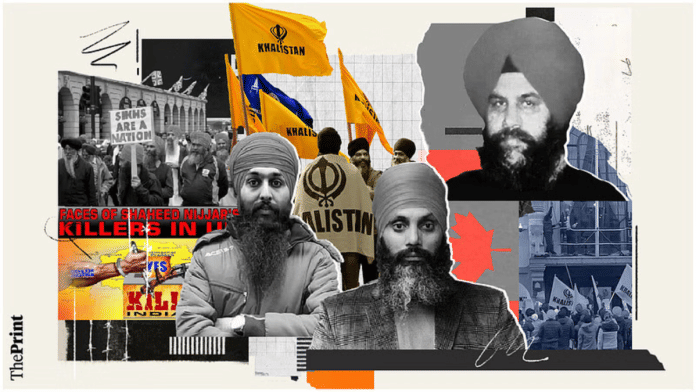Thank you dear subscribers, we are overwhelmed with your response.
Your Turn is a unique section from ThePrint featuring points of view from its subscribers. If you are a subscriber, have a point of view, please send it to us. If not, do subscribe here: https://theprint.in/subscribe/
Will Mr Narendra Modi and Amit Shah, not used to consulting in running their government, become more ‘conciliatory within the government and also I hope with the opposition?” reflects Shashi Tharoor.
For many, the idea of India has been reborn, the election results having expressed India’s yearning to defend her constitutional values and to reset her national chessboard along with its left-right political spectrum.
In direct contrast, Punjab continues to buck the trend. Amid the daily drama enacted by dal badlus (turncoats) and contrary to high expectations for ‘change’, the election results partly echoed the Lok Sabha polls of 2019: the Congress was ahead with 7 seats, AAP won 3, and SAD saved itself a washout with a solitary win at Bhatinda. But what most peace-loving Punjabis view as a possible threat is the electoral triumph of two independents.
Amrit Pal Singh won the ‘panthic’ Khadoor Sahib seat with a margin of 1,97,120 votes over his nearest rival, Congress candidate Kulbir Singh Zira, while Sarabjeet Singh Khalsa, son of Indira Gandhi assassin, Beant Singh, won in Faridkot by 70,053 over AAP’s Karamjit Singh Anmol. Shiromani Akali Dal (Amritsar) head and Khalistan (separate Sikh homeland) sympathiser, Simranjit Singh Mann, extended his party’s support to Amrit Pal Singh whom many view as his protégé.
An NSA detenue incarcerated in Dibrugarh jail, Amrit Pal has been inactive on social media, while Sarabjit Singh continues to issue statements in his hubris of raising another Akali Dal since, according to him, the present one is tainted and moribund having lost both its moorings and direction. Should that happen, there is every chance that Simranjit Mann would join them to provide the necessary politico-intellectual heft and the emerging triumvirate might prove far more potent with their inflammatory rhetoric and greater groundswell. The upsurge is already visible with Amrit Pal’s close associates and fellow detainees under NSA at Dibrugarh—Kulwant Singh Raoke, Bhagwant Singh, and Daljeet Singh Kalsi—announcing their intentions to contest assembly by-elections from Barnala, Gidderbaha, and Dera Baba Nanak, respectively.
For Amrit Pal, nonetheless, the waters are relatively murky on account of a rather sinister conspiracy theory that many including the SAD chief, Sukhbir Singh Badal, subscribe to—that he’s been “propped up by the central agencies”. Several incidents lend strength to this intrigue: a cleanshaven Amrit Pal, running his own family transport business in Dubai for ten years, was picked by Indian intel agencies and brought to Punjab in September 2022; he usurps leadership of the pressure group, ‘Waris Punjab De’, founded by the late Deep Sidhu (Deep Sidhu’s family still don’t accept him as successor); the Home Ministry (is known to have) issued a large number of arms licences to Amrit Pal and his outfit to stir trouble; after his attack on the Ajnala police station on 23 Feb 2023, the police manhunt ran like a charade for over a month; initially, Amrit Pal had shown no inclination to contest the Lok Sabha election until nominated, so people believe, by an RSS operative.
Such a flurry of ‘charges’ may be difficult to prove either way but if the investigation now under progress in North America over India’s aggressive posture to use its intelligence operatives as instruments of policy are any indication, Punjab could well be heading for uncharted waters that could prove far more dangerous than even the period leading up to and beyond Operation Blue Star in the 1980’s.
Unsurprisingly, India is circumspect to blame Amrit Pal’s political induction to Pak ISI. Be that as it may, parallels with the Bhindranwale narrative are difficult to ignore.
In his book ‘Tragedy of Punjab’, co-written with Khushwant Singh, veteran journalist Kuldip Nayar described Bhindranwale as similarly propped up by the Congress government. Sanjay Gandhi, “knowing how extra-constitutional matters worked,” suggested a “sant” be put up to challenge the Akali Dal government, its chief rival in Punjab. Two Sikh priests were shortlisted for the task, and the final selection left to Sanjay. One did not look “the courageous type.” The other was Bhindranwale. Sanjay’s friend, the MP Kamal Nath, told Nayar, “Bhindranwale, strong in tone and tenor, seemed to fit the bill. We would give him money off and on, but we never thought he would turn into a terrorist.”
Is this why Amrit Pal styles himself after Bhindranwale? Should Punjab brace itself for another round of militancy led by a propped-up government operative?
These pieces are being published as they have been received – they have not been edited/fact-checked by ThePrint


